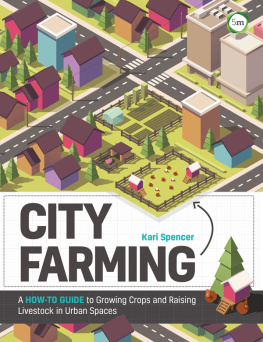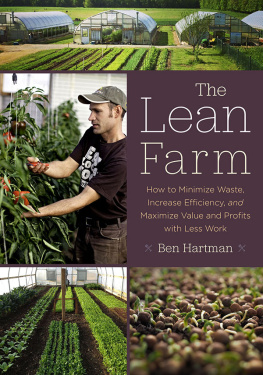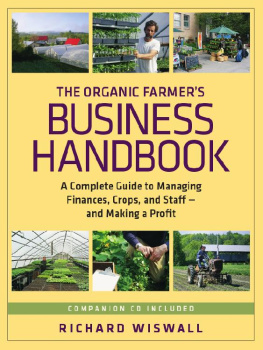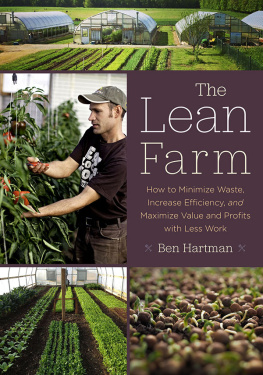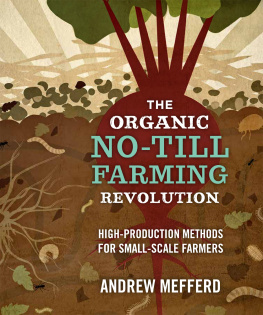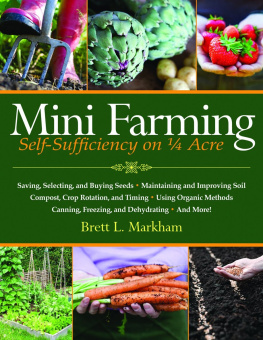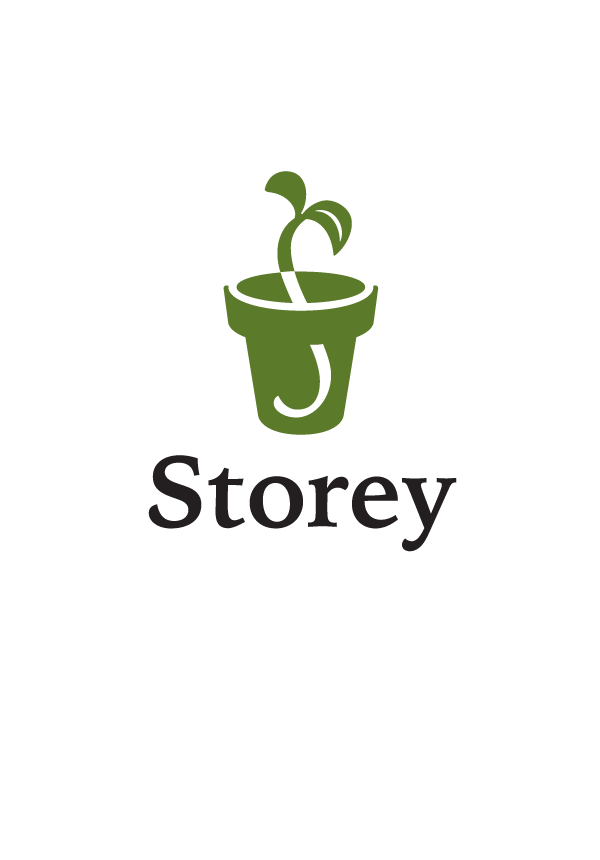Making Your Small Farm Profitable

Making Your Small Farm Profitable
Ron Macher
Foreword by Howard W. Bud Kerr, Jr.

The mission of Storey Publishing is to serve our customers by publishing practical information that encourages personal independence in harmony with the environment.
Edited by Deborah Burns and Marie Salter
Cover design by Meredith Maker
Cover photograph by Larry Lefever/Grant Heilman Photography, Inc.
Text design and production by Erin Lincourt
Photographs by Larry Lefever/Grant Heilman Photography, Inc., except those on page 232 by Nick DeCandia; 98 and 150 by Jane Grushow/Grant Heilman Photography, Inc.; 50, 74, 184 by Grant Heilman/Grant Heilman Photography, Inc.; 42 by Joel Sartore/Grant Heilman Photography, Inc.; 16 by Kristi Ann Gilman-Miller.
Line drawings by Chuck Galey, except those on pages 12, 56, 82, 161 (bottom) by Cathy Baker; 161 (top) by Brigita Fuhrmann; 161 (middle) by Millie Holderread; 54 and 55 by Alison Kolesar; 31, 39, 78, 83, 95, 125, 130, 136, 145, 148, and 187 by Elayne Sears; 162 by Becky Turner.
Indexed by Nan Badgett/Wordability
1999 by Margaret Radcliffe
All rights reserved. No part of this book may be reproduced without written permission from the publisher, except by a reviewer who may quote brief passages or reproduce illustrations in a review with appropriate credits; nor may any part of this book be reproduced, stored in a retrieval system, or transmitted in any form or by any meanselectronic, mechanical, photocopying, recording, or otherwithout written permission from the publisher.
The information in this book is true and complete to the best of our knowledge. All recommendations are made without guarantee on the part of the author or Storey Publishing. The author and publisher disclaim any liability in connection with the use of this information. For additional information please contact Storey Publishing, 210 MASS MoCA Way North Adams, MA 01247.
Storey books are available for special premium and promotional uses and for customized editions. For further information, please call 1-800-793-9396.
Printed in United States by Versa Press
20 19 18 17 16 15 14
Library of Congress Cataloging-in-Publication Data
Macher, Ron.
Making your small farm profitable / Ron Macher.
p. cm.
Includes bibliographical references and index
ISBN 978-1-58017-161-8
1. Farm management. 2. New agricultural enterprises. I. Title.
S561. M24 1999
630.68dc21 99-16219
CIP
Dedication
To my wife, Joanne,
and to my children, Jean and Jeff
Contents
Foreword
The agricultural industry is as old as America.
Generations before Columbus discovered the New World, natives of the Western Hemisphere grew maize, squash, and root crops. Our ancestors tilled the soil for subsistence and later embraced farming as a vocation. Over the years, because of scientific breakthroughs, new technology, and improved systems, the number of people employed in farming has declined; still, the business of farming remains vital to our well-being as a people and a nation.
Most of Americas nearly two million farms are considered small, with seven out of ten grossing less than $50,000 a year. Despite their preponderance, operators of small farms have often felt neglected by our national farm programs. Sources of advice for farmers starting out have about dried up, with agricultural county agents admitting that they have time to service only full-time farmersa group whose numbers are declining. The state departments of agriculture have marketing advice aplenty but are of little help to newcomers asking questions about credit, cropping recommendations, and cultural information. Needed are individual human beings whose hands are on the rural pulse and who have lots of information in their heads, but it remains to be seen who will train them or who will pay them. People have been spoiled for more than a century, recipients of free advice from the government, but that advice is gone now and wont be coming back.
A big establishment and greater sales volume do not guarantee a corresponding increase in profits. Likewise, buying land and calling that land a farm cannot ensure that your investment will be profitable. The days of starting out on a few dollars are over, and farming is now complex. People in the business are specialists, and many even have training in business theory. Such is farming in 1999, and so it will be in the years to come.
Today, as well as tomorrow, the most important piece of farm equipment is knowledge. Understanding complex situations or agribusiness production and marketing problems will be paramount to staying in business year after year. In this era of high technology, vacillating consumer wants and tastes, and shifting market conditions, farm managers and agricultural entrepreneurs are seeking help to cope with these and other situations. In the pastindeed, too frequentlypeople would shut the gate after the horse was out of the barn and then go look for the horse. Now, the preferred method is to have a plan of action in place before going to the barnknowledge is the key.
It starts with you. You must decide what is good for you, your family, and the farm business before purchasing resources or even planting a seed. Anyone can own a farm and call themselves a farmer, but to become profitable you must acquire and apply business skills.
Making Your Small Farm Profitable is your road map for planning a successful journey into the vast and diverse landscape of agriculture in the years ahead. Ron Macher is a veteran farmer, a true friend of mine and yours, and a huge advocate of small farms. Ron has been there and done that for agriculture for many decades. He writes from the heart for the sole purpose of instructing and guiding novice entrepreneurs, wanna-bes, and tried and true dirt under the fingernails farm people. Ron, like me, is close to the earthwe are both proven small farm operators. We have been close friends and colleagues championing Americas small farm community for many years. (Ron was in the private sector, while I served the public via the U.S. Department of Agriculture.)
In the early 1980s we witnessed the tragic loss of many family farms. Ron did not stand idly by as this occurred; rather, he launched a new publication aimed at Midwest farm families. The fledgling farm magazine Missouri Farm grew in popularity, and later the magazines name was changed to Small Farm Todaynow the industry bellwether.
Over the years, with the advent of new crops and technology, Ron found that his working hours were increasingly devoted to being an executive, not a farmer. This role brought a new kind of obligation, and Ron soon felt the kind of responsibility he has today; he got a glimpse of the complicated future he and others would face in industrialized agriculture. Already, he was greatly disturbed by the failure of government, both federal and state, to provide the information that small farm operators required. He took it upon himself to meet that need and began editing and publishing his magazine, now in circulation for more than 15 years.
Making Your Small Farm Profitable
Next page

